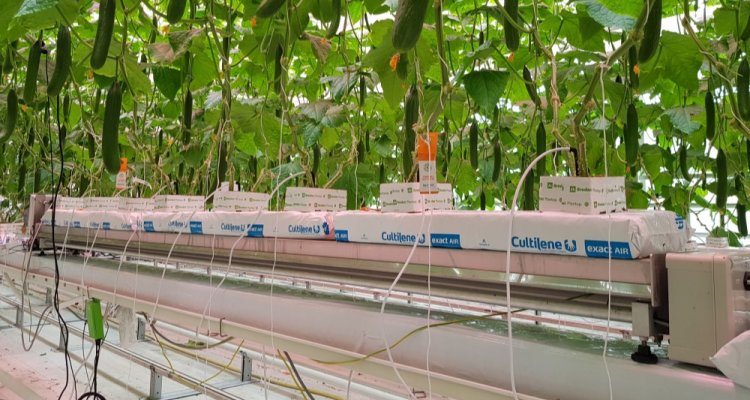Apr 15, 2021Cucumber growers share their vision on autonomous greenhouse cultivation
Over the last few years, there has been a considerable amount of interest in the concept of “autonomous cultivation” in greenhouse horticulture. The last two “autonomous greenhouse challenges” with cucumber and tomato have demonstrated that it is possible to control a greenhouse remotely while using labor and energy efficiently, and having a high level of production.
The current COVID-19 crisis only strengthens the need for autonomous cultivation: there is a need for fresh and healthy food, and the fact that there is sufficient labor in the greenhouse is no longer self-evident.
That is why the business unit Greenhouse Horticulture of Wageningen University & Research is currently cooperating with a number of commercial companies in the AGROS project “Towards an autonomous greenhouse.”
This project aims to control greenhouse cultivation by means of intelligent algorithms, based on the status of the crop, in which plant sensors play a major role.
Algorithms that control the greenhouse autonomously
In the first trial of AGROS, with a LED lighted cucumber crop in the Winterlight greenhouse, a large number of sensors have been installed, which continuously measure the light intensity at different heights in the crop, EC and water content of the slab, water uptake and transpiration via weighing gutters, sap flow and stem diameter sensors, and the development rate of the crop via camera systems.
The data of these sensors are combined to determine which sensors are most suitable to be used in the control algorithms for the autonomous greenhouse. One of the important questions in the development of these algorithms is which elements of their greenhouse and crop control pose the biggest challenges according to the growers themselves.
To find this out, a questionnaire was set up and filled in by a number of cucumber growers. The growers’ responses helped to prioritize in the development of the algorithms.
Discussing results
In an online meeting with cucumber growers, the trial in the Winterlight greenhouse was explained and an overview was given of the sensor data collected. The questionnaire clearly showed that growers consider fertigation as one of the aspects that would benefit greatly from making it autonomous.
Furthermore, monitoring of the crop status remains of great importance, because many of the crop handling actions and climate adjustments are based on this. These results imply that in the next phase of the AGROS project we will continue to focus on both control of water and nutrient status, and on the monitoring of plant status using the latest (vision) techniques. In the summer months, a new cultivation will start in the Winterlight Greenhouse, in which these topics are included.
– Wageningen University & Research

















